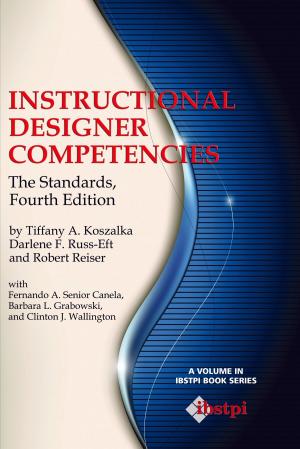Advancing Relational Leadership Research
A Dialogue among Perspectives
Nonfiction, Social & Cultural Studies, Political Science, Politics, Leadership, Business & Finance, Business Reference, Business Ethics, Management & Leadership, Management| Author: | ISBN: | 9781617359231 | |
| Publisher: | Information Age Publishing | Publication: | October 1, 2012 |
| Imprint: | Information Age Publishing | Language: | English |
| Author: | |
| ISBN: | 9781617359231 |
| Publisher: | Information Age Publishing |
| Publication: | October 1, 2012 |
| Imprint: | Information Age Publishing |
| Language: | English |
Leaders and followers live in a relational world—a world in which leadership occurs in complex webs of relationships and dynamically changing contexts. Despite this, our theories of leadership are grounded in assumptions of individuality and linear causality. If we are to advance understandings of leadership that have more relevance to the world of practice, we need to embed issues of relationality into leadership studies. This volume addresses this issue by bringing together, for the first time, a set of prominent scholars from different paradigmatic and disciplinary perspectives to engage in dialogue regarding how to meet the challenges of relationality in leadership research and practice. Included are cutting edge thinking, heated debate, and passionate perspectives on the issues at hand. The chapters reveal the varied and nuanced treatments of relationality that come from authors’ alternative paradigmatic (entity, constructionist, critical) views. Dialogue scholars—reacting to the chapters—engage in spirited debate regarding the commensurability (or incommensurability) of the paradigmatic approaches. The editors bring the dialogue together with introductory and concluding chapters that offer a framework for comparing and situating the competing assumptions and perspectives spanning the relational leadership landscape. Using paradigm interplay they unpack assumptions, and lay out a roadmap for relational leadership research. A key takeaway is that advancing relational leadership research requires multiple paradigmatic perspectives, and scholars who are conversant in the assumptions brought by these perspectives. The book is aimed at those who feel that much of current leadership thinking is missing the boat in today’s complex, relational world. It provides an essential resource for all leadership scholars and practitioners curious about the nature of research on leadership, both those with much research exposure and those new to the field.
Leaders and followers live in a relational world—a world in which leadership occurs in complex webs of relationships and dynamically changing contexts. Despite this, our theories of leadership are grounded in assumptions of individuality and linear causality. If we are to advance understandings of leadership that have more relevance to the world of practice, we need to embed issues of relationality into leadership studies. This volume addresses this issue by bringing together, for the first time, a set of prominent scholars from different paradigmatic and disciplinary perspectives to engage in dialogue regarding how to meet the challenges of relationality in leadership research and practice. Included are cutting edge thinking, heated debate, and passionate perspectives on the issues at hand. The chapters reveal the varied and nuanced treatments of relationality that come from authors’ alternative paradigmatic (entity, constructionist, critical) views. Dialogue scholars—reacting to the chapters—engage in spirited debate regarding the commensurability (or incommensurability) of the paradigmatic approaches. The editors bring the dialogue together with introductory and concluding chapters that offer a framework for comparing and situating the competing assumptions and perspectives spanning the relational leadership landscape. Using paradigm interplay they unpack assumptions, and lay out a roadmap for relational leadership research. A key takeaway is that advancing relational leadership research requires multiple paradigmatic perspectives, and scholars who are conversant in the assumptions brought by these perspectives. The book is aimed at those who feel that much of current leadership thinking is missing the boat in today’s complex, relational world. It provides an essential resource for all leadership scholars and practitioners curious about the nature of research on leadership, both those with much research exposure and those new to the field.















